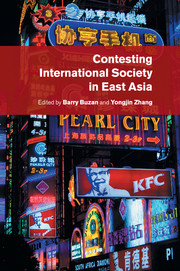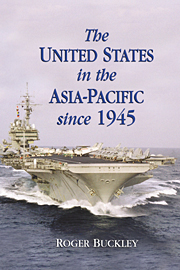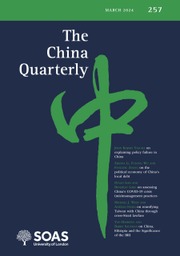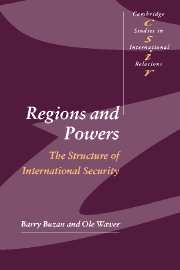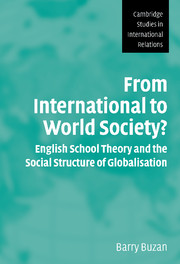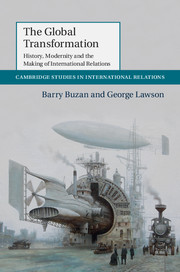Contesting International Society in East Asia
Bringing together some of the most innovative scholars in both the English School of international relations and East Asian studies, this volume investigates whether or not significant and distinct international social structures exist at the regional level represented by 'East Asia', and what this can tell us about international society both regionally and globally. The book's main finding is that the regional dispute over how its states and peoples should relate to the Western-dominated global international society makes the existence of East Asian international society essentially contested. While this regional-global social dynamic is present in many regions, it is particularly strong in East Asia. This book will appeal to audiences interested in developing English School theory, the study of East Asian international relations and comparative regionalism.
- The first book to comprehensively apply the English School theory of international society to contemporary East Asia, providing a new perspective on the social structure of the region
- Balances materialist theoretical approaches to East Asia with social ones, and sets these into a deep historical context, giving a deeper and more nuanced view of East Asian international relations, institutions, and the role of the US in the region
- Applies and develops the English School framework of primary institutions as a way to study international society, opening up a new mode of comparison for comparative regionalists, posing new empirical questions to English School theorists, and offering a competitive theoretical understanding of East Asian regionalism
Reviews & endorsements
"This book is the most authoritative and thorough application of the English School perspective to the international relations of East Asia and greatly enriches the theoretical study of East Asian international relations."
Amitav Acharya, UNESCO Chair in Transnational Challenges and Governance, American University, Washington, DC and President of the International Studies Association
"International relations is reinventing itself as global international relations. Contesting International Society in East Asia illustrates that the turn to global international relations is part of the present as well as the future. The editors have brought together influential theorists of the East Asian region to grasp how the region hangs together and also what makes it "hang together differently". This book will be warmly received by scholars and practitioners looking for more interpretive depth than is offered by the power shift narrative."
Tim Dunne, Professor and Executive Dean of the Faculty of Humanities and Social Sciences, The University of Queensland
"The editors and authors have produced an exceptionally coherent work and maintained the themes put forth at the start. The book is an illuminating application of the English School to the region and provides another tool to better understand the complexity of a diverse and multifaceted East Asia making an important contribution in both fields."
Terence Roehrig, Perspectives on Politics
Product details
March 2018Paperback
9781107434455
282 pages
229 × 150 × 15 mm
0.43kg
3 tables
Available
Table of Contents
- 1. Introduction: interrogating regional international society in East Asia Barry Buzan and Yongjin Zhang
- 2. International societies in pre-modern East Asia: a preliminary framework Feng Zhang
- 3. Imagining 'Asia': Japan and 'Asian' international society in modern history Shogo Suzuki
- 4. An East Asian international society today? The cultural dimension David C. Kang
- 5. Regional and global forces in East Asia's economic engagement with international society Mark Beeson and Shaun Breslin
- 6. Outside-in and inside-out: political ideology, the English School and East Asia Alice D. Ba
- 7. East Asia and the strategic 'deep rules' of international/regional society Yuen Foong Khong
- 8. East Asia as regional international society: the problem of great power management Evelyn Goh
- 9. Social boundaries in flux: secondary regional organizations as a reflection of regional international society Rosemary Foot
- 10. Conclusion: the contest over East Asian international society Barry Buzan and Yongjin Zhang.

